A few weeks ago, I sent out a survey asking for feedback on my website, including content ideas they’d be interested in seeing on the blog. I was so happy to receive an overwhelming amount of responses that asked for a blog post around sustainability.
As humans, we have caused so much detrimental change to this planet – and unfortunately, we’re really starting to see the effects of what we’ve done in the past and what we’re collectively still doing. We are the caretakers of this planet, and it’s imperative that we’re mindful about our lifestyle choices in order for future generations to explore and enjoy all of earth’s beauty as we’ve been so lucky to do. It’s a big job, and one that must be taken seriously. I know the individual changes we make can sometimes seem small, but together we can make a big difference. There’s no going back or undoing what has been done, but we all must make sacrifices in our lives, so we can preserve what we do have left here on earth. Hold yourself and other accountable. We can all do better.

This list isn’t exhaustive, but here are some ways to start living more mindfully in your daily life. You can also reference my blog post on how to reduce waste and plastic use for more ideas. What are some sustainable practices that you’ve incorporated into your lifestyle? Let me know in the comments!
AROUND THE HAUS
- Turn off appliances: Save energy by turning off appliances when they’re not in use. If you can, it’s best to completely unplug them so that no energy is wasted.
- Use energy-efficient light bulbs: Although these cost a little more than regular light bulbs, they end up saving you money over their lifetime because they use less energy. You can find LEDs (light-emitting diodes) and CFLs (compact fluorescent lamps) next to regular light bulbs at most stores. Before you turn on a lamp, always consider whether you can open some window blinds instead. Natural light is the best!

- Find new life for things: Once something is no longer usable for its original purpose, consider whether it can serve another one before you throw it away. Old toothbrushes are great for cleaning small spaces, old T-shirts can be used as cleaning cloths, and newspapers can be saved for kindling or a messy art project. That’s one of my favorite aspects of the Wu Haus candles: once the candle’s done, the vessel can be reused for whatever your heart desires. If there’s anything you no longer want but is still in working or good condition, offer it to a friend or donate it to your local thrift store so that it can have another life in someone else’s home.
- Use A/C sparingly: To save energy, consider letting your house get a little cooler in the winter and a little warmer in the summer than you normally would. In the winter, I like to snuggle up in blankets and warm socks before I consider turning on the heat. I don’t have central air conditioning, but I help stay cool in the summer by opening windows at night to let the breeze in, drinking iced beverages and eating cooling foods like salads and fruits.
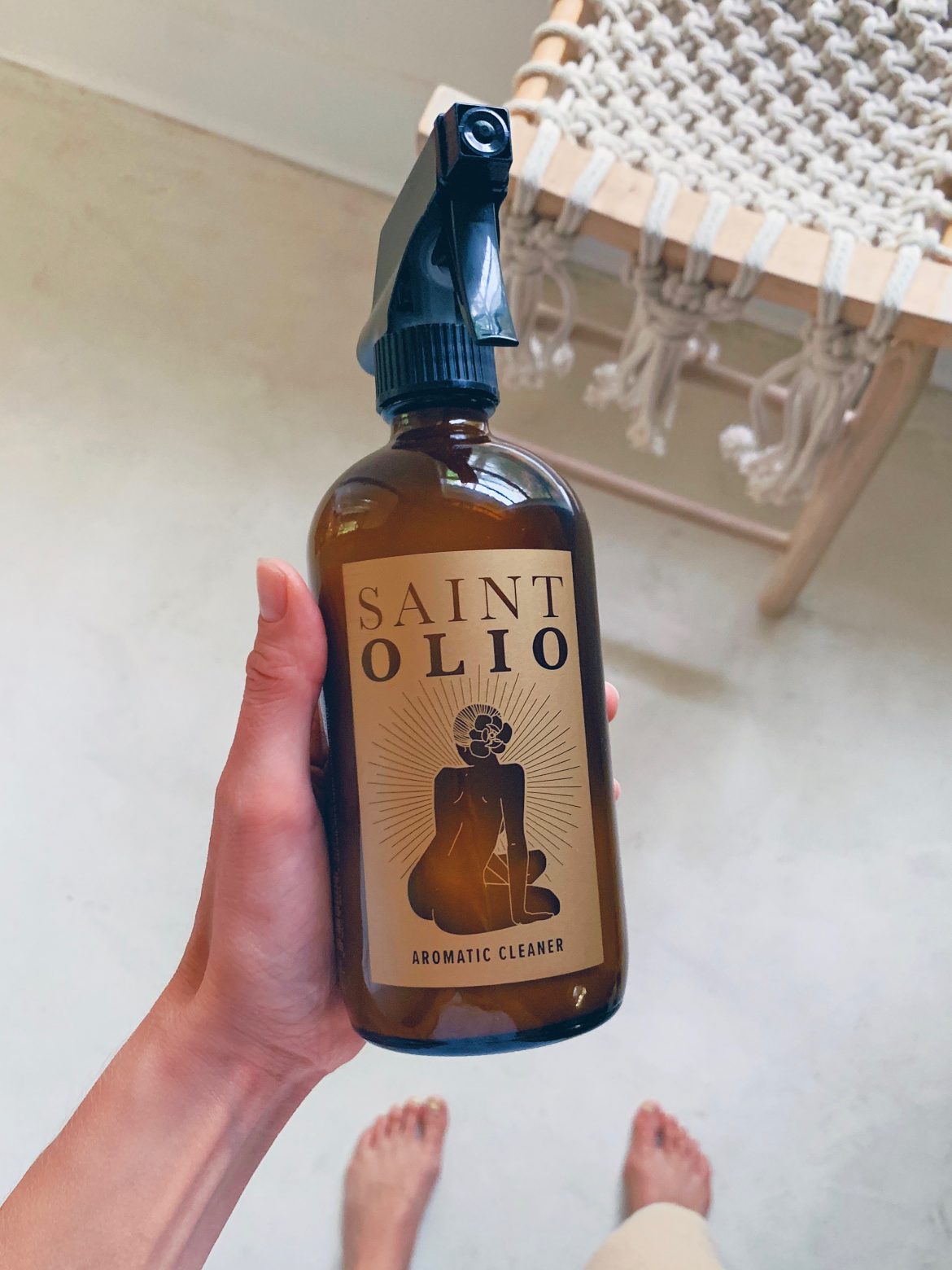
- Use eco-friendly cleaning products: Buy only natural cleaning products that don’t use harsh chemicals that can harm the environment. Avoid products that include phosphates, chlorine, ammonia and petroleum distillates. To reduce plastic use, find a product that comes in a concentrate. That way you can pour a little into a reusable spray bottle and add water, rather than buying several spray bottles for the same amount of use. I absolutely love Saint Olio and only use their products for cleaning my haus. The founder (who also happens to live down the street from me!), Sherri Kaven, uses essential oils to naturally scent her cleaning products, which also have disinfectant properties of their own. Her line comes in four amazing scents – citron, neroli, sitka and her new limited-edition Aromatic Cleaner with fragrant notes of lime, ginger and greenery. Her products smell so dang good that they actually inspire me to clean. I use the cleaner concentrate to clean everything in my haus, which makes cleaning a total breeze.
- Go paperless: Switch to paperless billing where you can, opt for e-vites over paper invites, and keep notes on your phone or computer instead of notebooks. I don’t live hard and fast by this rule: I love journaling and the meditative act of writing. Just consider where you’re comfortable with going paperless to minimize waste.
- Recycle + compost: I am so fortunate to live in a city that has both recycling and composting programs. For those who don’t, I recommend researching what programs are available in your area and see if there’s an affordable option to consider. Another suggestion would be to start a petition to bring these programs to your area.
IN THE KITCHEN
- Buy in bulk: Reduce plastic use by shopping from the bulk section of your grocery store or at farmers’ markets.
- Choose paper, glass or aluminum over plastic (which can leach toxic chemicals into your food, often doesn’t actually get recycled, and takes hundreds of years to decompose). This is definitely easier said than done sometimes. So much of what we buy comes in plastic, but it’s good to be mindful of our consumption. To cut down on product packaging, buy in bulk and also try to make food items like broths, dips, etc. yourself at home.
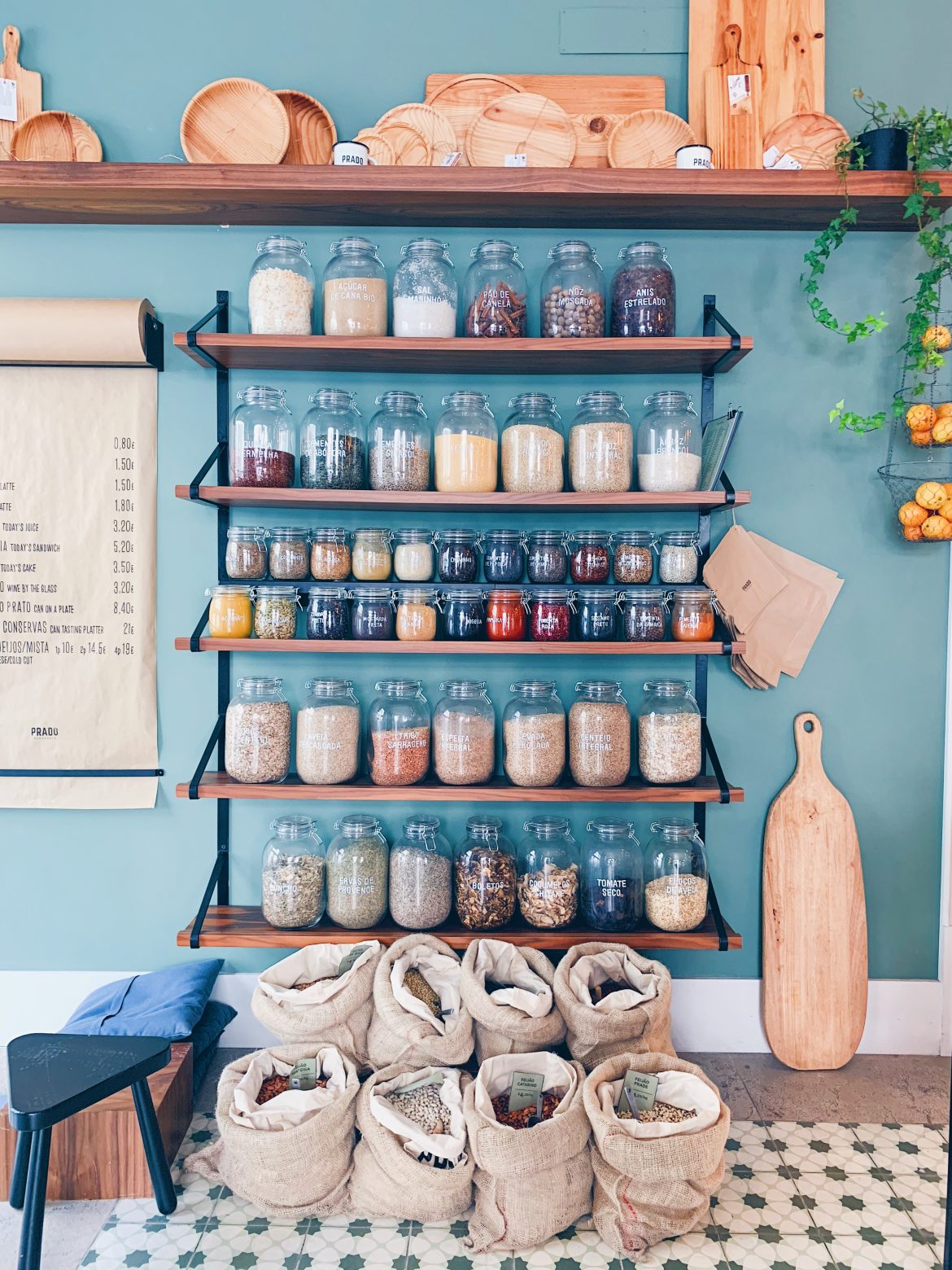
- Be a mindful meat eater: As you may know, I was a vegetarian for many years before reintroducing meat back into my diet. I still live a plant-based lifestyle, but do buy and eat meat occasionally. When I do, I make sure that I am buying locally and from a farm with ethical, sustainable practices, including providing a healthy environment for their livestock and not using harmful pesticides on crops. It takes some research before you head to the grocery store, but it’s well worth it. You may also consider buying your meat from the farmers’ market, where you’re able to ask them questions directly.
- Eat local: This is good for so many reasons. The food is fresher, you’re supporting your local community, and your food doesn’t have to travel hundreds of miles, meaning it has a smaller carbon footprint. If you have the time and space, I encourage you to start growing some of your favorite herbs and veggies. It’s so rewarding to work with the land and eat what you’ve grown!
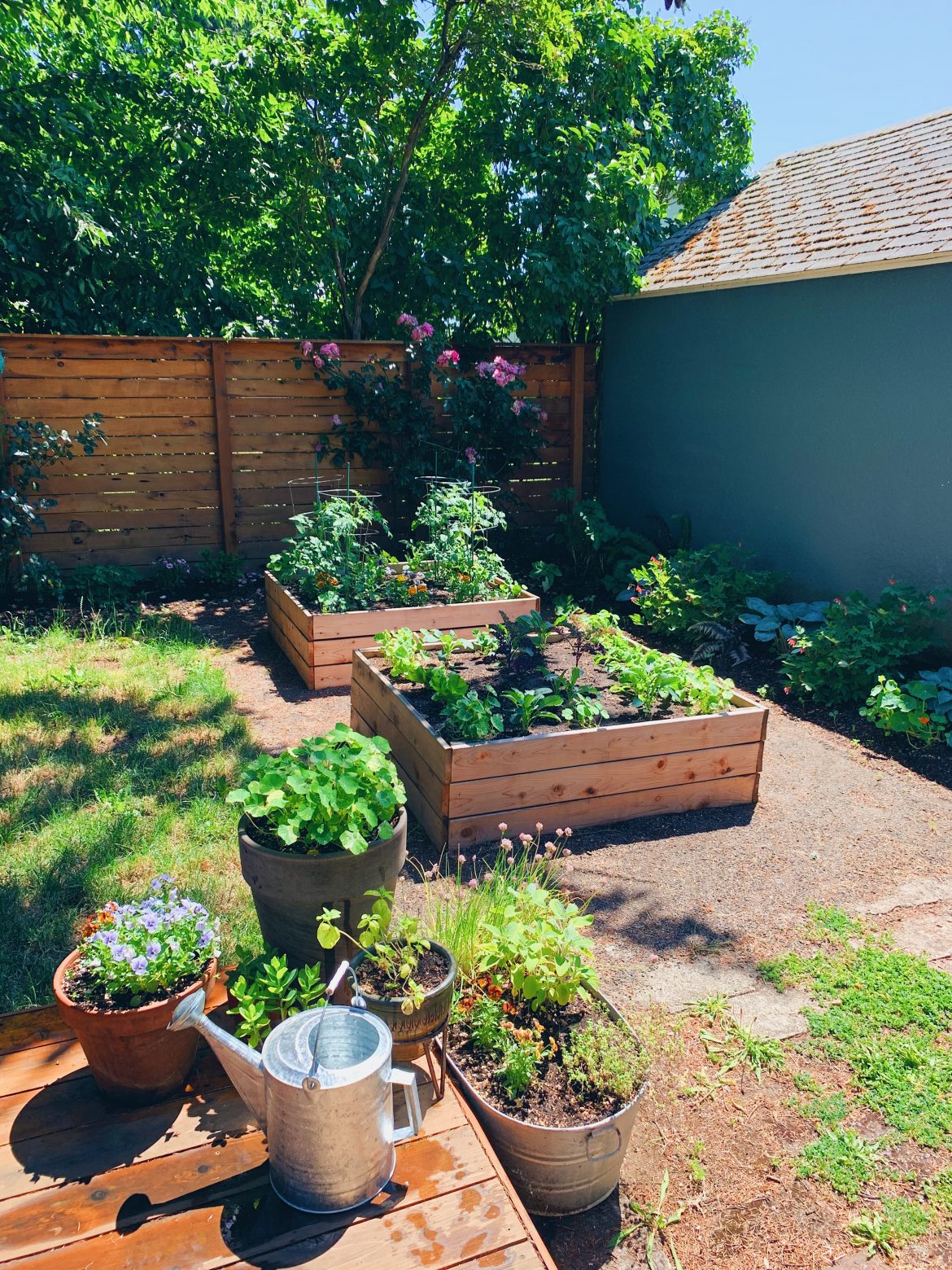
- Don’t buy bottled water: If you need filtered water, get a water filtration system rather than buying bottled water. My Walter water filter has provided our family with clean drinking water for years! Use code WUWALTER for $20 off anything in the shop (excludes all black WALTER). When traveling to countries where I can’t drink the tap water, I use my GRAYL purifying water bottle.
- Use reusable bags, produce bags + storage containers: Use tote bags for groceries, mesh bags for your produce, and reusable glass containers for leftovers and storage rather than their plastic counterparts.
ON THE ROAD
- Bike, walk, bus or carpool: THIS IS SO IMPORTANT. We all need to drive wayyyyyyy less. Biking or walking to work/happy hour/etc. is a great way to sneak some exercise into your life while promoting sustainability. For longer distances, consider public transportation or carpooling with a friend or coworker.
- Keep your car serviced: For those who do need to drive their car, make sure you’re getting it serviced regularly and addressing any issues that come up. When cars aren’t working optimally, they become less efficient and can waste fuel. When the time comes to get a new car, consider investing in an electric car or a hybrid.
- Reconsider souvenirs: When I’m on vacation, I only like to get souvenirs that I know I’m going to use or enjoy regularly, like a special piece of jewelry or ceramic piece. I generally avoid getting anything that I know will end up in a corner, dusty and forgotten over time. Sometimes the only thing I bring home with me from trips are pictures, which provide way more memories and nostalgia than a shot glass ever could. Less is more.
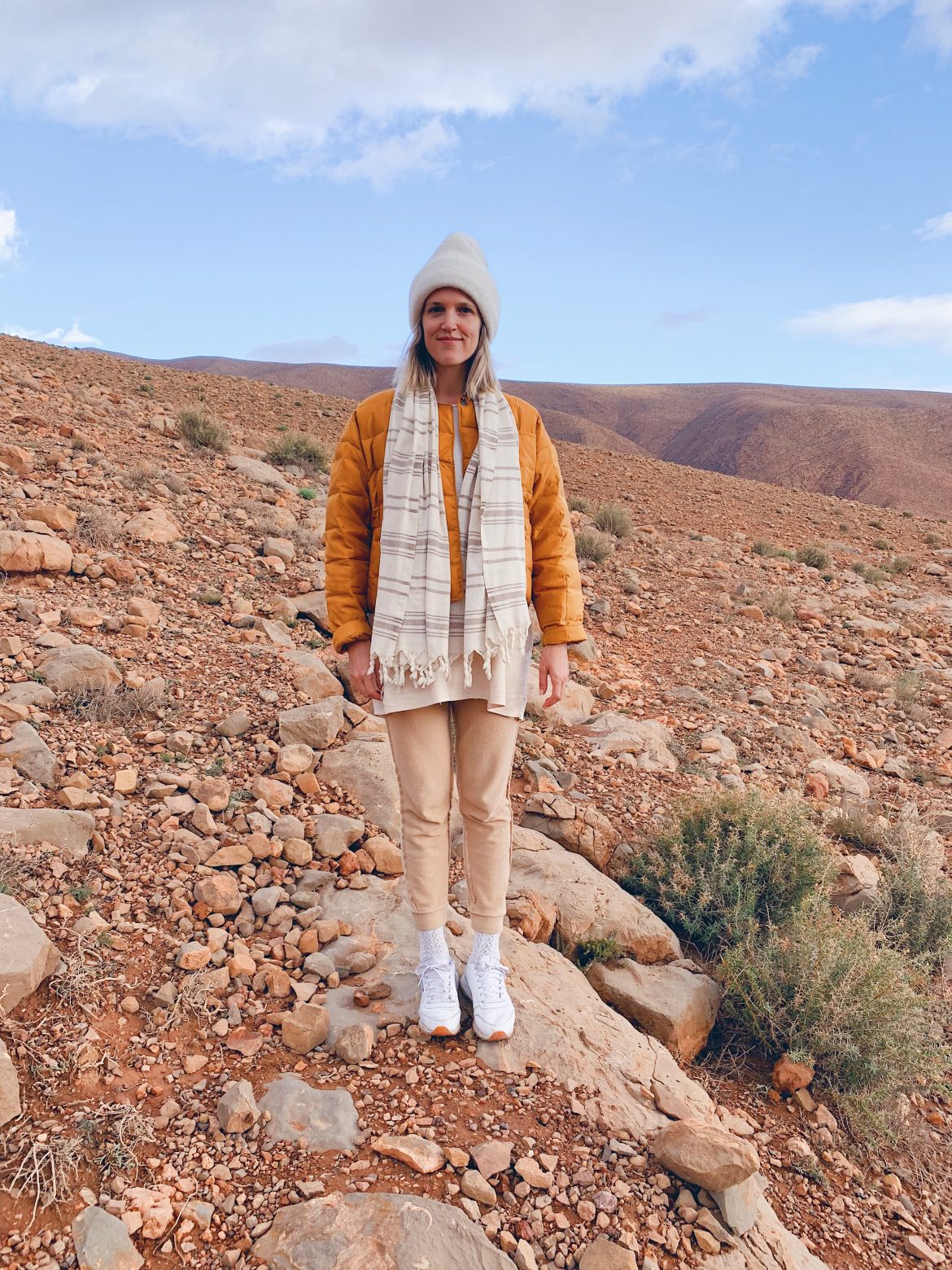
- Stay green: Living that hotel life can be a major luxury, but just because you’re not at home doesn’t mean you should stop living sustainably. A lot of hotels now offer you the option to not receive new towels and sheets daily. You may also look into accommodations that are known for their sustainable practices, including those that offer plastic-free toiletries and recycling services.
- Pack your travel mugs + metal straws: There is so much unnecessary waste involved with drinks on the go, and it can all be avoided by bringing your own mug and/or water bottle and reusable straw. I bring my bkr water bottle and Hydroflask travel mug on every trip, so I stay hydrated and can get my daily matcha fix without excessive waste.
-
FOR YOUR CLOSET
- Invest in high-quality clothes: There is so much information available now about the true cost of fast fashion, from the terrible working environments it often supports to the amount of waste it produces. Well-made clothing comes at a higher price tag, but investing in clothes that will last a long time will save you money in the end. Go for timeless styles that will stay chic and relevant as the trends change.
- Shop at second-hand/vintage/thrift stores: So many gems to be found at second-hand stores. You can find the best one-of-a-kind pieces and usually at a great price. Buying used clothing and accessories on sites like Depop is a great option too.
- Choose eco-friendly fabrics: Natural materials like linen, cotton, silk and wool take less energy to make than synthetic fabrics such as polyester and don’t leach microplastics into the water when washing.
- Wash + dry smartly: Washing your clothes in cold water takes up less energy than washing in hot water, plus you avoid possibly shrinking clothes. If you have a heavy stain that would normally require hot water to remove, pre-treat the stain with concentrated laundry detergent before washing in cold water. Only use machines for full loads, and consider hang drying your clothes instead of using a drying machine.
BIGGER PICTURE
- Support businesses that prioritize sustainability: There’s a lot of power in where you spend your money, so spend it wisely. As a responsible consumer, I encourage you to do your research and shop brands whose values and practices align with your own. If you see an area for improvement, share your feedback with the brand. We can all learn from each other and there’s always room for growth.
- Encourage others: We have a large influence on the people in our lives and demonstrating how easy and important it is to adopt sustainable habits can make a big impact. It can be as easy as bringing a spare travel mug when you meet a friend for coffee, or telling them where you like to buy bulk goods. The best thing is to share what you’re doing and why it’s so important. Try to be encouraging and positive rather than patronizing – people are more likely to change their habits when they feel inspired over feeling shamed.
- Use your voice: Support policies and people who are working toward a more sustainable future. Vote for candidates who care about the environment, sign petitions for change, and be vocal within your community. Being active makes a big difference. Donate your time, donate your money. Every little bit helps.
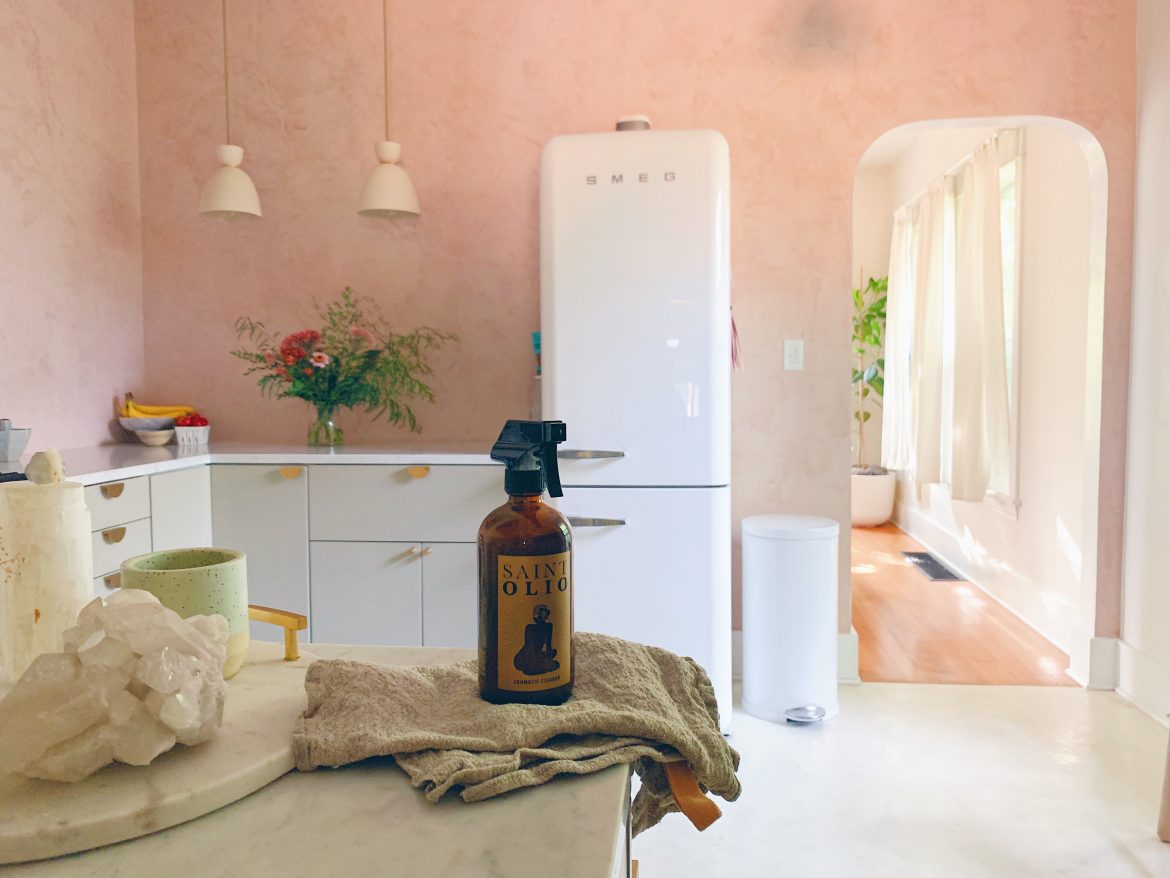

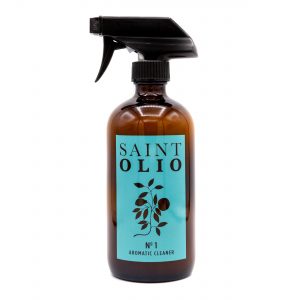

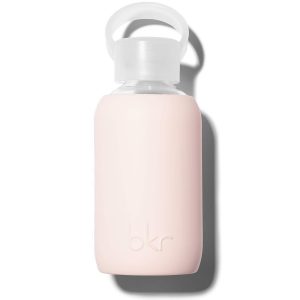
1 comment
Hey Alison! Consider sharing with your followers what they can do to reduce microfiber plastic pollution from laundry? A single synthetic garment can produce around 2,000 tiny plastic fibers that end up in our seafood and water and even snow in the arctic! They also absorb toxic chemicals from the environment on their way. Filters like the Lint LUV-R and Filtron or Cora Ball or Guppy Friend can reduce the amount of plastic we wash down our drains every time we do laundry. Thanks!!
Comments are closed.